-
About
- About Listly
- Community & Support
- Howto
- Chrome Extension
- Bookmarklet
- WordPress Plugin
- Listly Premium
- Privacy
- Terms
- DMCA Copyright
- © 2010-2025 Boomy Labs

Listly by Jon Henry
A collection of books that belong on every bookshelf

Charles Darwin's On the Origin of Species, published on 24 November 1859, is a work of scientific literature which is considered to be the foundation of evolutionary biology. Its full title was On the Origin of Species by Means of Natural Selection, or the Preservation of Favoured Races in the Struggle for Life. For the sixth edition of 1872, the short title was changed to The Origin of Species. Darwin's book introduced the scientific theory that populations evolve over the course of generations through a process of natural selection. It presented a body of evidence that the diversity of life arose by common descent through a branching pattern of evolution. Darwin included evidence that he had gathered on the Beagle expedition in the 1830s and his subsequent findings from research, correspondence, and experimentation.

The Prince (Italian: Il Principe) is a political treatise by the Italian diplomat, historian and political theorist Niccolò Machiavelli. From correspondence a version appears to have been distributed in 1513, using a Latin title, De Principatibus (About Principalities). But the printed version was not published until 1532, five years after Machiavelli's death. This was done with the permission of the Medici pope Clement VII, but "long before then, in fact since the first appearance of the Prince in manuscript, controversy had swirled about his writings".[1]

The God Delusion is a 2006 bestselling[1] non-fiction book by English biologist Richard Dawkins, professorial fellow of New College, Oxford,[2][3] and inaugural holder of the Charles Simonyi Chair for the Public Understanding of Science at the University of Oxford.

The Art of War is an ancient Chinese military treatise attributed to Sun Tzu (also referred to as "Sun Wu" and "Sunzi"),[1] a high ranking military general, strategist and tactician, and it was believed to have been compiled during the late Spring and Autumn period or early Warring States period.[2] The text is composed of 13 chapters, each of which is devoted to one aspect of warfare. It is commonly known to be the definitive work on military strategy and tactics of its time. It has been the most famous and influential of China's Seven Military Classics, and: "for the last two thousand years it remained the most important military treatise in Asia, where even the common people knew it by name."[3] It has had an influence on Eastern and Western military thinking, business tactics, legal strategy, and beyond.

The Communist Manifesto (Das Kommunistische Manifest), originally titled Manifesto of the Communist Party (German: Manifest der Kommunistischen Partei) is a short 1848 publication written by the German Marxist political theorists Karl Marx and Friedrich Engels. It has since been recognized as one of the world's most influential political manuscripts.[2] Commissioned by the Communist League, it laid out the League's purposes and program. It presents an analytical approach to the class struggle (historical and present) and the problems of capitalism, rather than a prediction of communism's potential future forms.[3]

The Critique of Pure Reason (German: Kritik der reinen Vernunft) by Immanuel Kant, first published in 1781, second edition 1787, is one of the most influential works in the history of philosophy.[1] Also referred to as Kant's "first critique," it was followed in 1788 by the Critique of Practical Reason and in 1790 by the Critique of Judgment. In the preface to the first edition Kant explains what he means by a critique of pure reason: "I do not mean by this a critique of books and systems, but of the faculty of reason in general, in respect of all knowledge after which it may strive independently of all experience."

The Discourse on the Method is a philosophical and autobiographical treatise published by René Descartes in 1637. Its full name is Discourse on the Method of Rightly Conducting One's Reason and of Seeking Truth in the Sciences (French title: Discours de la méthode pour bien conduire sa raison, et chercher la vérité dans les sciences). The Discourse on Method is best known as the source of the famous quotation "Je pense, donc je suis" ("I think, therefore I am"), which occurs in Part IV of the work. (The similar statement in Latin, Cogito ergo sum, is found in §7 of Principles of Philosophy.)

The Fear of Freedom, as it is known in Britain and elsewhere in the English-speaking world – published in North America as Escape from Freedom – is a book by the Frankfurt-born psychologist and social theorist Erich Fromm. First published in Britain by Routledge and Kegan Paul in 1942, the book explores over a few short chapters humanity's shifting relationship with freedom, with particular regard to the personal consequences of its absence. Its special emphasis is the psychosocial conditions that facilitated the rise of Nazism.

Mein Kampf (English: My Struggle or My Battle) is a book by Nazi leader Adolf Hitler. It combines elements of autobiography with an exposition of Hitler's political ideology. Volume 1 of Mein Kampf was published in 1925 and Volume 2 in 1926.[1] The book was edited by the former Hieronymite friar Bernhard Stempfle who later died during the Night of the Long Knives.[2][3][4]
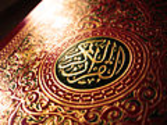
The Quran (English pronunciation: /kɔrˈɑːn/[n 1]kor-AHN; Arabic: القرآن al-qurʾān, IPA: [qurˈʔaːn],[n 2] literally meaning "the recitation"), also transliterated Qur'an, Koran, Al-Coran, Coran, Kuran, and Al-Qur'an, is the central religious text of Islam, which Muslims consider the verbatim word of God1. It is regarded widely as the finest piece of literature in the Arabic language.[2][3][4][5][6]
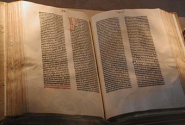
The Bible (from Koine Greek τὰ βιβλία ta biblia "the books") is any one of the collections of the primary religious texts of Judaism and Christianity. There is no common version of the Bible, as the contents and the order of the individual books (Biblical canon) vary among denominations. The 24 texts of the Hebrew Bible are divided into 39 books in Christian Old Testaments, and complete Christian Bibles range from the 66 books of the Protestant canon to the 81 books of the Ethiopian Orthodox Church Bible. The Hebrew and Christian Bibles are also important to other Abrahamic religions, including Islam[1] and the Bahá'í Faith,[2] but those religions do not regard them as central religious texts.
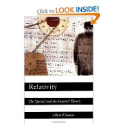
Amazon.com: Relativity: The Special and the General Theory (9780517884416): Albert Einstein: Books

How to Win Friends and Influence People is one of the first bestselling self-help books ever published. Written by Dale Carnegie and first published in 1936, it has sold 15 million copies world-wide.[1]
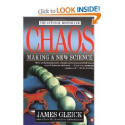
Amazon.com: Chaos: Making a New Science (9780747404132): James Gleick: Books

The Satanic Verses is Salman Rushdie's fourth novel, first published in 1988 and inspired in part by the life of Muhammad. As with his previous books, Rushdie used magical realism and relied on contemporary events and people to create his characters. The title refers to the so-called "satanic verses", a group of alleged Quranic verses that allow intercessory prayers to be made to three Pagan Meccan goddesses: Allāt, Uzza, and Manāt.[1] The part of the story that deals with the "satanic verses" was based on accounts from the 1st millennium (AD or AH) historians al-Waqidi and al-Tabari.[1]

The Giving Tree is a children's book written and illustrated by Shel Silverstein. First published in 1964 by Harper and Row, it has become one of Silverstein's best known titles and has been translated into more than 30 languages.[1]

Animal Farm is an allegorical novella by George Orwell published in England on 17 August 1945. According to Orwell, the book reflects events leading up to and during the Stalin era before the Second World War. Orwell, a democratic socialist,[1] was a critic of Joseph Stalin and hostile to Moscow-directed Stalinism, especially after his experiences with the NKVD and the Spanish Civil War.[2] In a letter to Yvonne Davet, Orwell described Animal Farm as his novel "contre Stalin".[3]

The Chronicles of Narnia is a series of seven high fantasy novels by C. S. Lewis. It is considered a classic of children's literature and is the author's best-known work, having sold over 100 million copies in 47 languages. Written by Lewis between 1949 and 1954, illustrated by Pauline Baynes and originally published in London between October 1950 and March 1956, The Chronicles of Narnia has been adapted several times, complete or in part, for radio, television, the stage, and film.
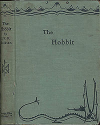
The Hobbit, or There and Back Again, better known by its abbreviated title The Hobbit, is a fantasy novel and children's book by J. R. R. Tolkien. It was published on 21 September 1937 to wide critical acclaim, being nominated for the Carnegie Medal and awarded a prize from the New York Herald Tribune for best juvenile fiction. The book remains popular and is recognized as a classic in children's literature.

The Adventures of Tom Sawyer by Mark Twain is an 1876 novel about a young boy growing up along the Mississippi River. The story is set in the Town of "St. Petersburg", inspired by Hannibal, Missouri, where Mark Twain lived.[2]

The Hiding Place is a 1971 book on the life of Corrie ten Boom, written by ten Boom together with John and Elizabeth Sherrill.

Foundation is the first novel in Isaac Asimov's Foundation Trilogy (later expanded into The Foundation Series). Foundation is a collection of five short stories, which were first published together as a book by Gnome Press in 1951 which, together, form a single plot.
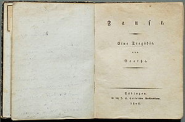
Faust: The First Part of the Tragedy (German: Faust. Eine Tragödie. or Faust. Der Tragödie erster Teil) is the first part of Goethe's Faust. It was first published in 1808.